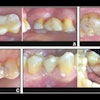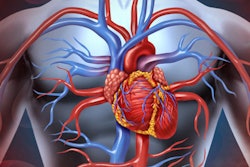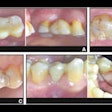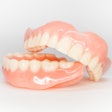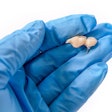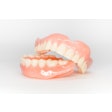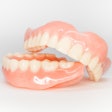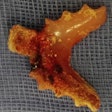
Losing at least two teeth in middle age is linked to an increased risk of developing cardiovascular disease, according to new research presented at a 2018 American Heart Association meeting in New Orleans.
Researchers investigated tooth loss and heart disease incidence in more than 60,000 middle-aged U.S. adults for eight years. Based on their findings, study author Lu Qi, MD, PhD, thinks that inflammation may be the link between the two conditions.
"Tooth loss in middle age is more likely related to inflammation," Dr. Qi stated in a press release. "But it hasn't been clear how this later-in-life tooth loss might influence cardiovascular disease."
Dr. Qi is the director of the Tulane University Obesity Research Center in New Orleans. The research was a partnership between the Tulane University School of Public Health and Tropical Medicine and the Harvard T.H. Chan School of Public Health.
Finding the link
Previous studies investigating the link between tooth loss and heart disease often account for childhood tooth loss, which is often due to trauma, caries, or orthodontics. But Dr. Qi and colleagues were curious to see whether the association between the two conditions would still be present if they looked at tooth loss only during middle age, when tooth loss is more likely to be caused by inflammation or dietary changes.
To find out, they examined data of 60,967 adults who participated in the Nurses' Health Study and the Health Professionals Follow-Up Study. At the beginning of the studies, participants were between the ages of 45 and 69 and did not have cancer or heart disease. Researchers then followed the participants for eight years, calculating tooth loss and heart disease incidence.
Losing two or more teeth during the study period was associated with a 16% increase in cardiovascular disease risk for all study participants. That risk increased to 23% for those with at least 25 teeth and to 25% for those with fewer than 17 teeth.
The increased risk of cardiovascular disease was present even after adjusting for potential confounding variables, including body weight, physical activity, diet, high blood pressure, high cholesterol, and diabetes, the researchers noted. In addition, they did not find a significant difference in heart disease risk for participants who lost only one tooth.
One study shortcoming was that the participants self-reported tooth loss, which may have led to misclassification, according to the researchers. Nevertheless, their preliminary research is important for identifying those who may be at risk for heart disease and tooth loss.
"Our findings suggest that middle-aged adults who have lost two or more teeth in the recent past could be at increased risk for cardiovascular disease," Dr. Qi stated. "That's regardless of the number of natural teeth a person has as a middle-aged adult or whether they have tradition risk factors for cardiovascular disease, such as poor diet or high blood pressure."


